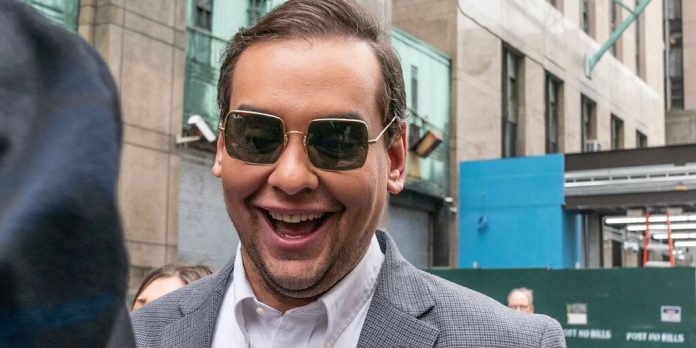Rep. George Santos (R-NY) reportedly attempted to broker a cryptocurrency transaction with a political donor during his first unsuccessful run for Congress in 2020, according to a New York Times investigation. Santos and three associates told the donor, a wealthy investor, that a wealthy Polish citizen wanted to purchase crypto, but his funds were frozen in a bank account. They proposed creating a limited liability company that could supposedly gain access to the frozen money.
The skeptical donor likened the plan to a “Nigerian prince” email scam, suspecting that Santos and his colleagues might be the targets instead. When the donor asked for more information, he was asked to sign a nondisclosure agreement that included the names of Michael LiPetri, Dominick Sartorio and someone else. But talks ended when the investor sought changes to the agreement.
The unusual Polish crypto deal reflects Santos’ tendency to mix political relationships and business opportunities during his campaign in a way that raises ethical red flags, according to the Times. In July 2020, he was connected to Blue Flame Medical, a new company selling coronavirus testing kits founded by two GOP operatives. Santos signed on as a consultant who could earn 10% on any deal he orchestrated, but he soon separated from Blue Flame without arranging any sales.
After leaving his Florida investment firm months later amid fraud claims, Santos opened a political consulting firm with his campaign treasurer Nancy Marks and former colleagues. One of the firm’s first clients was Congressional candidate Tina Forte, whom Santos encouraged to hire the company without disclosing he partly owned it. The consulting firm, Red Strategies, dissolved in September 2022 after irregularities in its campaign accounting.
The Times investigation also revealed that Santos coordinated a $20 million yacht sale between two donors in late 2022 while his election win looked likely, claiming he earned referral fees from such deals. Prosecutors allege Santos then solicited $50,000 from donors for a PAC, pocketing the money instead of spending it on ads. He has now been charged with 13 felonies for misrepresenting his earnings, collecting unemployment, and stealing funds from political supporters.
The Polish crypto deal reveals Santos’ early interest in the high-risk, high-reward world of digital assets, as well as his habit of treating political supporters more like lucrative business contacts than committed constituents. During his 2022 campaign, Santos also falsely claimed to have worked for top Wall Street firms and achieved vast wealth by age 19 through crypto trading. In reality, records indicate he lived with financial constraints prior to entering politics.
The House Ethics Committee is currently investigating Santos over potential violations of finance rules, disclosure requirements and other standards of conduct, and the Polish crypto deal adds one more data point to an emerging pattern of ethical impropriety.

